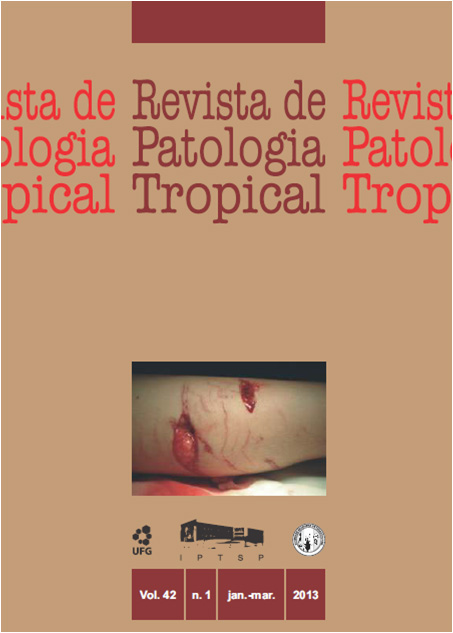INFECÇÃO DO TRATO URINÁRIO EM GESTANTES DE ALTO RISCO
DOI:
https://doi.org/10.5216/rpt.v42i1.23590Palavras-chave:
Infecção Urinária, Complicações na gravidez, Pré-natal.Resumo
Objetivo: Verificar a freqüência de infecções do trato urinário, seus principais agentes etiológicos e suscetibilidade aos antimicrobianos em gestantes. Além disso, verificar a ITU como fator de risco para complicações materno-fetais. Metodologia: Coletamos dados de prontuários de gestantes do grupo de estudo com infecção urinária e grupo de comparação sem infecção do trato urinário, do Serviço de Gravidez de Alto Risco do Hospital Universitário da Universidade Federal de Mato Grosso do Sul durante o período Abril de 2005 a Abril de 2010. Resultados: Das 864 gestantes estudadas, 15,6% (135/864) apresentaram infecção do trato urinário. Escherichia coli foi a bactéria mais freqüente em 34,8% (47/135) dos casos. Cepas de E. coli foram mais sensíveis à norfloxacina (91,4%), nitrofurantoína (80,8%) e ceftriaxona (74,4%) e mais resistentes à ampicilina (42,5%), sulfametoxazol-trimetoprima (31,1%) e cefalosporinas de primeira geração (14,8%). Houve associação significativa entre parto pré-termo, baixo peso ao nascer e infecção do trato urinário. Não houve associação significativa com ruptura prematura de membranas, admissão em UTIneo e Apgar menor que 7 em 5 min. Conclusão: O uso de urocultura como triagem pré-natal de rotina permite diagnóstico precoce e tratamento da infecção urinária em mulheres grávidas, permitindo melhores condições perinatais.
Downloads
Downloads
Como Citar
Edição
Seção
Licença
The manuscript submission must be accompanied by a letter signed by all authors stating their full name and email address, confirming that the manuscript or part of it has not been published or is under consideration for publication elsewhere, and agreeing to transfer copyright in all media and formats for Journal of Tropical Pathology.

